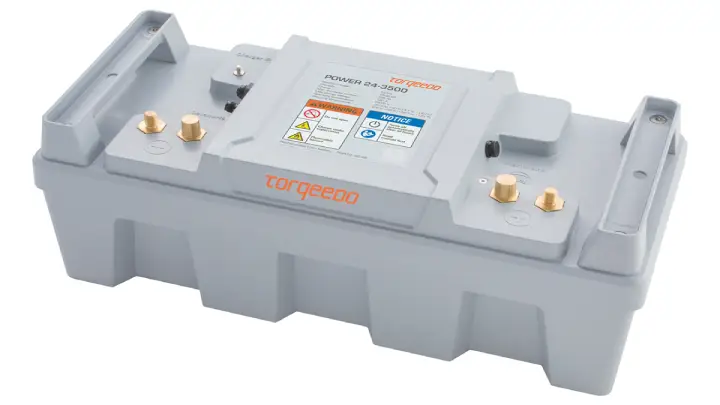Lithium marine batteries have gained popularity in recent years due to their numerous advantages over traditional lead-acid batteries. Lithium batteries are lighter, more efficient, and have a longer lifespan than lead-acid batteries. These advantages make them ideal for use in marine applications where weight, space, and reliability are crucial factors.
One of the primary advantages of lithium marine batteries is their energy density. They can store more energy per unit of weight and volume than lead-acid batteries. This means that lithium batteries can provide more power for a longer period, which is particularly useful for marine applications where power demands can be high.
Lithium marine batteries also have a longer lifespan than lead-acid batteries. They can last up to 10 years or more, while lead-acid batteries typically last 2-5 years. This means that lithium batteries are more cost-effective over the long term, as they require less frequent replacement.
In addition to their performance benefits, lithium marine batteries are also more environmentally friendly than lead-acid batteries. They are non-toxic and do not release harmful gases during use or disposal, making them a safer and more sustainable option.
However, some downsides to lithium marine batteries should be considered. They can be more expensive upfront than lead-acid batteries, which can be a barrier for some boat owners. Lithium batteries also require a different charging system than lead-acid batteries, which may require some modifications to existing electrical systems.
Overall, lithium marine batteries are a promising technology that offers significant advantages over traditional lead-acid batteries. As the technology continues to improve and become more affordable, they are likely to become an increasingly popular choice for boat owners seeking reliable and efficient power sources.
Table of Contents
Advantages of Lithium Marine Batteries over Traditional Lead-Acid Batteries
Lithium marine batteries offer several advantages over traditional lead-acid batteries, including:
Lighter Weight: Lithium batteries are much lighter than lead-acid batteries, making them easier to handle and install. This is especially important in boats where weight is a critical factor.
Higher Energy Density: Lithium batteries have a higher energy density than lead-acid batteries. This means that they can store more energy in the same amount of space, allowing for longer run times and greater power output.
Longer Lifespan: Lithium batteries have a longer lifespan than lead-acid batteries. They can last up to 10 years or more, while lead-acid batteries typically last between 3-5 years.
Lithium batteries can be charged a lot more quickly than lead-acid batteries. This means less time spent waiting for your batteries to charge and more time spent out on the water.
More Efficient: Lithium batteries are more efficient than lead-acid batteries. They can deliver more power with less energy loss, which means better performance and longer run times.
Maintenance-free: Lithium batteries are maintenance-free, while lead-acid batteries require regular maintenance such as topping up with distilled water and equalizing the cells to ensure even charging.
Safer: Lithium batteries are safer than lead-acid batteries because they are less prone to leaking, overheating, and exploding. They also don’t contain toxic chemicals like lead and acid, which can be harmful to the environment.
B2B Lithium Marine Batteries: Revolutionizing Marine Power Solutions
Lithium marine batteries are a game-changer in the marine power solutions industry, especially for businesses operating in the marine sector. The advantages of lithium-ion batteries over traditional lead-acid batteries are many, including higher energy density, longer life span, and improved safety features.
B2B lithium marine batteries have several key benefits for businesses:
Increased reliability: Lithium marine batteries are more reliable than lead-acid batteries, with a longer lifespan and more consistent performance.
Improved safety: Lithium marine batteries have a built-in safety mechanism that prevents overcharging, over-discharging, and overheating, which can be a significant safety hazard in traditional batteries.
Increased efficiency: Lithium marine batteries are more efficient than lead-acid batteries, providing more power in a smaller and lighter package. This increased efficiency translates into cost savings, as less fuel is needed to generate the same amount of power.
Longer lifespan: Lithium marine batteries have a longer lifespan than lead-acid batteries, with some models lasting up to 10 years or more.
Lower maintenance costs: Lithium marine batteries require less maintenance than lead-acid batteries, resulting in lower maintenance costs over time.
Faster charging times: Lithium marine batteries can be charged much faster than traditional batteries, allowing boats to spend less time at the dock and more time on the water.
Overall, B2B lithium marine batteries are revolutionizing the marine power solutions industry by providing businesses with a reliable, efficient, and cost-effective power source that can help improve their bottom line.

